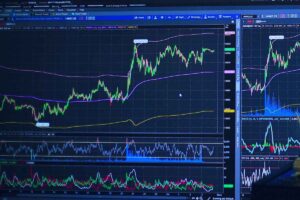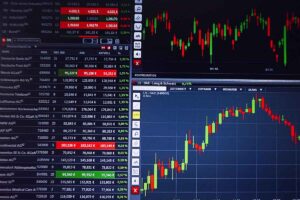What is a Securities Regulator?
Securities regulators or stock market regulatory bodies are government or self-regulatory organizations responsible for overseeing and regulating the securities industry within a specific jurisdiction. These bodies create a comprehensive regulatory framework to ensure the fairness, transparency, and integrity of securities markets.
Securities regulatory bodies are responsible for monitoring and supervising the operations of securities markets and their participants to ensure they function within this framework. This includes overseeing stock exchanges, alternative trading platforms, and other market participants to prevent market manipulation and fraud.
To safeguard the interests of investors, regulators establish rules and regulations that govern the behavior of publicly traded companies, financial professionals and other market participants. They often require these entities to disclose material information and enforce laws designed to combat fraudulent practices.
Securities regulators often mandate individuals and entities involved in the securities industry to obtain licenses and register with the appropriate regulatory authority. This ensures that market participants meet specific qualifications and adhere to ethical standards.
In some countries, a securities regulator is also referred to as securities commission. For example, the Canadian securities regulator, the Canadian Securities Administrators (CSA), is often referred to as a securities commission.
Securities regulators are part of the larger financial regulatory framework, working in coordination with other regulatory bodies to ensure comprehensive financial regulation.
Financial regulatory authorities are government agencies or quasi-governmental bodies responsible for regulating the financial sector within a country. They encompass a wide range of institutions and activities, including banking, insurance, securities markets, and more.
Securities regulators operate under the umbrella of financial regulatory authorities and focus specifically on the regulation and oversight of securities markets.
Need for Regulations in the Stock Market
Regulations are essential in the stock market for several reasons:
Investor Protection: Regulations are designed to safeguard the interests of investors. They ensure that investors have access to accurate and complete information about the securities they are buying. This helps prevent fraudulent activities and ensures that investors can make informed decisions.
Market Integrity: Regulations are in place to maintain the integrity of the market. They help prevent market manipulation, insider trading, and other unethical or illegal practices that could undermine trust in the market.
Fairness: Regulations promote fairness in the market. Regulators establish rules that apply equally to all market participants, ensuring a level playing field. This fairness is crucial in building and maintaining investor confidence.
Transparency: Regulations require companies to disclose relevant financial information, making it available to the public. This transparency is vital for investors and analysts to assess the health and performance of companies.
Market Stability: Regulations are designed to prevent events in the financial system from cascading into a larger crisis. Regulators work to identify and address systemic risks that could threaten the overall stability of the financial system. By establishing rules and regulations, regulators help prevent excessive volatility and systemic risks that could lead to financial crises.
Risk Mitigation: Regulations often include risk management measures to protect investors and the financial system from excessive risk-taking. For example, margin requirements and position limits in derivatives markets help mitigate risk.
Enforcement of Contracts: Regulations provide the legal framework for enforcing contracts in the market. Investors have recourse through the legal system if their rights are violated.
Public Confidence: Regulations are fundamental in maintaining public confidence in the financial markets. When investors and the public believe that there is a regulatory framework in place, they are more likely to participate in the market.
Legal Clarity: Regulations provide legal clarity and certainty for market participants. They define the rights and responsibilities of various players, reducing uncertainty and potential disputes.
Overall, regulations in the stock market are essential for maintaining market order, protecting investors, and ensuring the smooth functioning of the financial system.
Role & Functions of Securities Regulators
Securities regulators or stock market regulatory bodies play a crucial role in overseeing and regulating financial markets to ensure they operate fairly, efficiently, and transparently. Their functions encompass various aspects of the securities industry. Here are the key roles and functions of securities regulators:
1. Market Oversight
Supervision: Securities regulators monitor the operations of financial markets, including stock exchanges, market participants and other trading platforms, to ensure they function in compliance with the law.
Market Surveillance: They employ surveillance systems to detect and investigate irregular trading activities, such as market manipulation and insider trading.
Regulatory Compliance: Regulators enforce rules and regulations governing the market, ensuring market participants adhere to legal and ethical standards.
2. Investor Protection
Disclosure Requirements: Securities regulators establish rules that mandate companies to disclose material information to the public, ensuring that investors have access to accurate and timely data.
Monitoring and Compliance: Regulators monitor the activities of market participants, such as broker-dealers, investment advisors, and exchanges, to ensure they comply with rules and regulations that protect investors.
Education and Awareness: They promote investor education to empower individuals to make informed investment decisions and protect themselves from fraudulent schemes.
3. Licensing and Registration
Qualification Standards: Securities regulators establish criteria and standards for licensing individuals and entities in the securities industry, ensuring that they meet minimum qualifications.
Registration: They require market participants, such as broker-dealers, investment advisors, and fund managers, to register with regulatory authorities.
4. Regulation, Enforcement and Investigation
Rules and Regulations: Regulators develop and enforce rules and regulations governing the securities industry to maintain a fair and orderly market.
Investigative Authority: Regulators have the power to investigate and take enforcement actions against individuals or entities violating securities laws.
Penalties and Sanctions: They can impose fines, penalties, and sanctions, including suspension or revocation of licenses, on those found guilty of violations.
5. Capital Market Development
Facilitate Capital Raising: Securities regulators oversee the process of capital raising, including initial public offerings (IPOs) and secondary offerings, to ensure they are conducted in a fair and transparent manner.
Promote Market Growth: They create an environment that encourages the growth and development of the capital market.
6. Risk Management
Risk Mitigation: Securities regulators establish risk management guidelines and rules to mitigate systemic risks in the financial system. This includes regulating margin trading and short selling.
Stress Testing: They may conduct stress tests to assess the resilience of financial institutions and markets to adverse scenarios.
Systemic Risk Management: Regulators identify and address systemic risks that could pose a threat to the stability of the financial system.
7. Market Transparency & Integrity
Financial Reporting: Regulators require companies to publish financial statements, earnings reports, and other material events to provide transparency and enable investors to assess the financial health of businesses.
Prevent Market Manipulation: Regulators develop and enforce regulations to prevent market manipulation and maintain the integrity of the financial system.
Insider Trading Surveillance: They monitor insider trading activities to prevent unfair advantages and maintain a level playing field for all investors.
Examples of Regulators in the Stock Market
Every country has its own regulatory bodies who oversees the activities of the stock market and regulates the market.
The Securities and Exchange Commission (SEC) is the primary regulator overseeing the securities industry in the United States. It enforces securities laws, ensures market integrity, and protects investors. It is an independent agency created by United States federal government, and was established by the Securities Act of 1933 and Securities Exchange Act of 1934.
The U. S. Securities and Exchange Commission (SEC) has a three-part mission:
- Protecting Investors
- Maintaining Fair, Orderly, and Efficient Markets
- Facilitating Capital Formation
Within the U.S. Securities and Exchange Commission (SEC), there are several divisions and offices, each responsible for specific aspects of securities regulation and oversight.
The six divisions of SEC are:
- Division of Corporation Finance: This division oversees the disclosure of important information by public companies and provides guidance on various securities laws and regulations. It reviews registration statements and periodic reports filed by companies.
- Division of Trading and Markets: Responsible for ensuring that the securities markets operate in a fair and efficient manner. It regulates securities exchanges, self-regulatory organizations, securities firms, and other market intermediaries.
- Division of Investment Management: Regulates investment companies, including mutual funds, and investment advisers. It reviews and approves registration statements, proxy statements, and other filings related to investment products.
- Division of Enforcement: Investigates potential violations of securities laws and, when necessary, brings enforcement actions against individuals and entities that have violated these laws.
- Division of Economic and Risk Analysis: Provides economic analysis and risk assessment to support the SEC’s rulemaking and policy development. It also helps assess market risks and potential regulatory changes.
- Division of Examinations: Conducts examinations and inspections of investment companies, investment advisers, broker-dealers, and other market participants to ensure compliance with securities laws.
There are various self-regulatory organizations (SROs) that operate under the oversight of the SEC and regulate various aspects of the securities industry. Major ones are:
Financial Industry Regulatory Authority (FINRA): FINRA is one of the most prominent SROs. It regulates brokerage firms, the securities industry, and protects investors. It oversees areas such as broker-dealer conduct, market integrity, and investor protection.
Municipal Securities Rulemaking Board (MSRB): The MSRB regulates firms and professionals involved in the issuance, sale, and trading of municipal securities, which are bonds issued by state and local governments.
In addition to the SEC, there are various other securities regulators that contribute to the oversight and regulation of the securities industry.
Commodity Futures Trading Commission (CFTC): The CFTC is a regulatory agency responsible for overseeing and regulating the derivatives and futures markets in the United States. It was established in 1974 as an independent agency and is headquartered in Washington, D.C.
The CFTC’s primary mission is to protect market participants and the investors from fraud, manipulation, and abusive practices related to the sale of commodity and financial futures and options.
Major Securities Regulatory Bodies in the World
Major securities regulatory bodies worldwide oversee financial markets, protect investors, and ensure the integrity of securities trading. Here are some of the prominent securities regulatory bodies in different regions:
United States
U.S. Securities and Exchange Commission (SEC): The SEC is the primary regulatory authority for securities markets in the United States. It enforces federal securities laws, regulates the securities industry, and protects investors.
Canada
Canadian Securities Administrators (CSA): CSA is an umbrella regulatory organization of Canada’s provincial and territorial securities regulators that serves Canadian markets, securities issuers, and investors.
United Kingdom
Financial Conduct Authority (FCA): The FCA regulates financial markets and firms in the UK, including securities and derivatives.
Australia
Australian Securities and Investments Commission (ASIC): ASIC regulates Australia’s financial markets, including securities, derivatives, and corporate conduct.
Japan
Financial Services Agency (FSA): The FSA oversees financial markets, including securities and banking, in Japan.
Hong Kong
Securities and Futures Commission (SFC): The SFC regulates securities and futures markets in Hong Kong.
India
Securities and Exchange Board of India (SEBI): SEBI is India’s regulatory body for securities markets, overseeing equities, bonds, and derivatives.
Singapore
Monetary Authority of Singapore (MAS): MAS is Singapore’s financial regulatory authority, overseeing securities and other financial markets.
Brazil
Comissão de Valores Mobiliários (CVM): CVM is the securities and exchange commission of Brazil, responsible for regulating the securities market.
South Africa
Financial Sector Conduct Authority (FSCA): FSCA regulates the South African financial sector, including securities and market conduct.
Mexico
Comisión Nacional Bancaria y de Valores (CNBV): CNBV regulates securities markets in Mexico.










